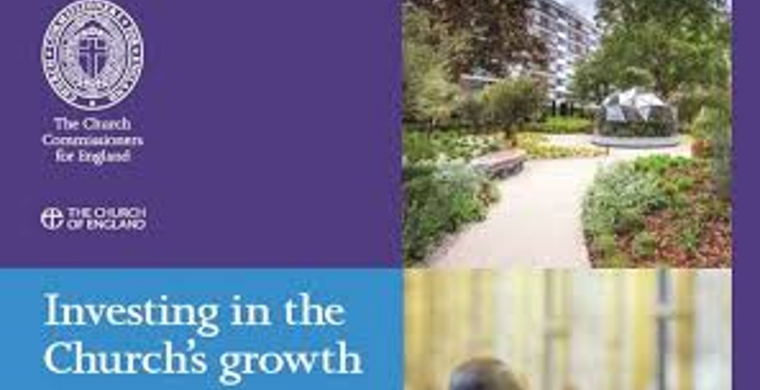UK: Cash package announced to help dioceses
Stipends 'absolutely not' at risk, says John Spence
By Tim Wyatt
Church Times
April 3, 2020
ABOUT £75 million has been made available in short-term liquidity funding for dioceses and cathedrals struggling with their finances owing to the coronavirus.
The Church Commissioners and Archbishops' Council last week agreed a package of measures to help parts of the Church of England whose income had collapsed during the pandemic and associated shutdown.
In addition, the National Heritage Lottery Fund announced on Wednesday that it was making an additional £50 million available to support heritage projects jeopardised by the pandemic.
In an email sent to every bishop, dean, and diocesan secretary, the First Church Estates Commissioner, Loretta Minghella, and the chair of the finance committee of the Archbishops' Council, John Spence, said that the cash was an interim measure to ensure that those
struggling could stay afloat while the central Church came up with more comprehensive support.
Mr Spence said on Tuesday that, as soon as the Government imposed social-distancing rules, the Commissioners and Archbishops' Council heard from dioceses and cathedrals that they were feeling the pinch.
Visitor numbers at cathedrals had dwindled to nothing, parishes had had to stop holding congregational services and so had lost cash collections, and other bodies have suffered widespread cancellation of room and building bookings, he said.
"What we wanted to do was immediately give that reassurance into the Church that we were all in this together.
"The measures we sent through on Friday have been in the space of 'Yes, we hear, we understand, we're with you. . . therefore, here's some immediate things we can do to ease your liquidity'."
Any diocese that was finding it difficult to make its monthly payments to the Commissioners to cover clergy stipends could delay up to three months' worth of these and pay back the balance over the next year, Mr Spence said. Fifty million pounds of funding had been made
available by the Commissioners to cover this.
"There is no risk to the stipends of our priests, absolutely not," Mr Spence reiterated. The other £25 million of the emergency package came from funding due to go from the Commissioners to dioceses, based on the relative poverty of the communities that they serve. This
would be paid up front in a lump sum in April rather than spread out over 2020 as normal. Standard grants of £3 million would also be paid up front to cathedrals.
Mr Spence acknowledged that these measures did not address the huge falls in revenue and income that some parts of the Church had experienced, and promised that more substantial help was on the way.
Having stabilised the situation with this emergency funding, the national church institutions intend to gather evidence of how hard-hit each diocese and cathedral had been, before deciding on their next moves.
Decisions on the next tranche of support would be made in weeks, not months, Mr Spence said.
In the mean time, every diocese that had cash reserves should use them where possible and apply for any government assistance for which they were eligible, the Commissioners said. THE National Lottery Heritage Fund said on Wednesday that it had set up a new Heritage
Emergency Fund to help those most in need over the next three to six months. It is also putting £1.2 million into developing essential digital skills across the sector, to include digital fundraising, social media and running online events and activities.
The Emergency Fund will pay out between £3000 and £50,000 will be available to organisations that have received funding in the past, a current recipient of a grant, or still under contract from an earlier grant. No specific mention is made of churches, but they are
eligible if they meet the criteria, along with historic sites, museums, industrial and maritime heritage, libraries and archives, parks and gardens and natural areas.
The Heritage Fund says that priority will be given where there is limited or no access to other sources of support, or where heritage is "most at risk".
A survey by the Fund, carried out among 1250 heritage organisations, suggests that 82 per cent of them predice a high or moderate risk to their long-term viability. Nearly half (46 per cent) say that they can survive no longer than six months under present conditions; 35 per
cent stated their financial reserves will be depleted within four months.
The emergency funding will be diverted from planned new grants, with all new grant applications halted with immediate effect. Payments to projects that have already received development funding will continue, however.
Duncan Wilson, chief executive of Historic England, welcomed the £50-million fund. said: "We are also planning emergency financial support to run alongside this and other measures introduced by the Government and our partners in the heritage and cultural sectors, and will
announce details soon."
END














